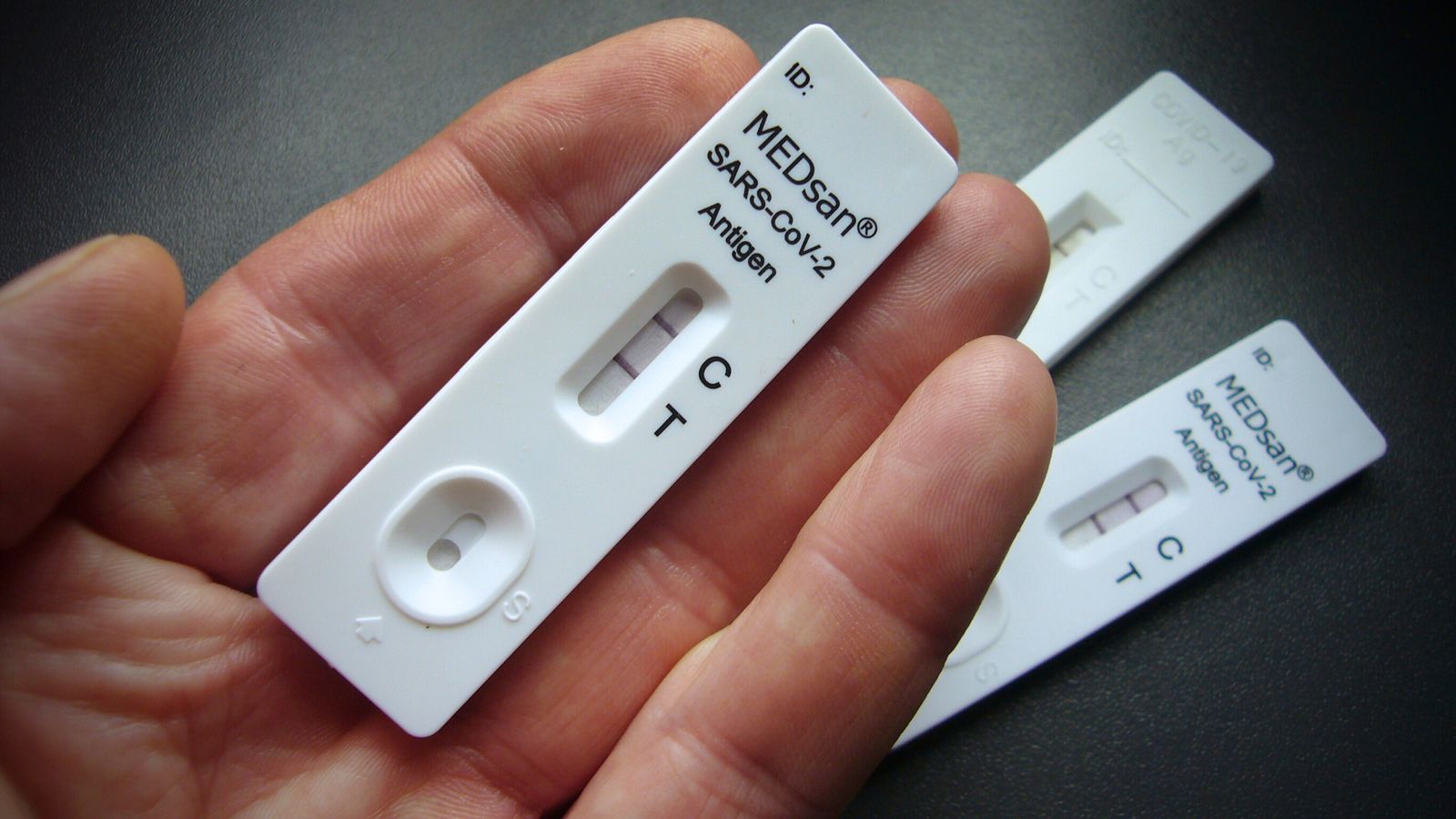Most people with mild COVID-19 are still infectious five days after symptoms begin, a study suggests, throwing into question current NHS guidance on how long to avoid contact with others.
Research by Imperial College London found two thirds of participants were still infectious at five days and a quarter were still infectious at seven days.
Current NHS guidance is that people should try to stay at home and avoid contact with others for five days.
There is no longer a legal requirement to self-isolate if you test positive for COVID-19.
The new study comes after another found that most people who were infected with the Omicron variant didn’t even realise they had COVID-19.
The research is the first to unveil how long infectiousness lasts for after natural COVID-19 infection in the community.
The study team conducted detailed daily tests from when 57 people were exposed to the virus to look at how much infectious virus they were shedding throughout their infection.
NHS COVID pass fixed after glitch leaves UK travellers struggling to board flights
COVID increases risk of brain fog and dementia, study suggests
Most people with Omicron didn’t even realise they had COVID-19, study finds
They found:
Read more:
UK approves ‘next-generation’ COVID vaccine
Study co-author Dr Seran Hakki from Imperial’s National Heart and Lung Institute, said: “There is no longer a legal requirement to self-isolate if you test positive for COVID-19, but most people still want to isolate until they are not infectious.
“Despite this, there is lack of clarity around how to come out of self-isolation safely.
“Our study is the first to assess how long infectiousness lasts for, using real life evidence from naturally acquired infection. Our findings can thus inform guidance as to how to safely end self-isolation.”
She added: “If you test positive for COVID-19 or have symptoms after being in contact with someone with confirmed COVID-19, you should try to stay at home and minimise contact with other people.”








